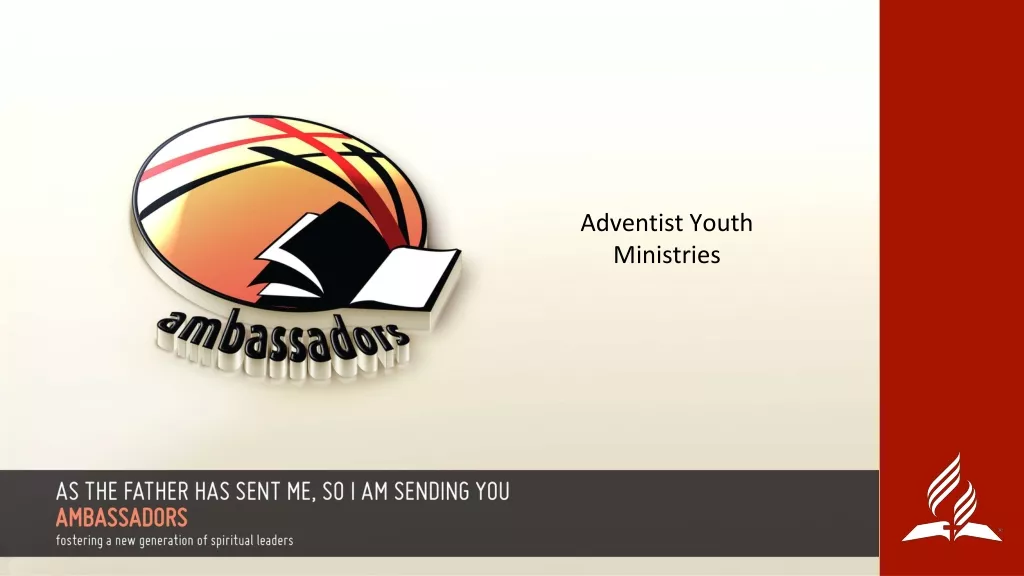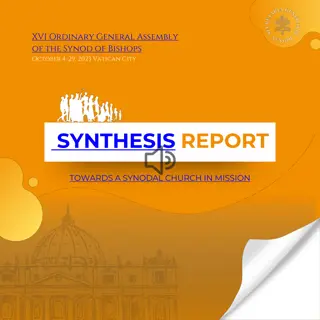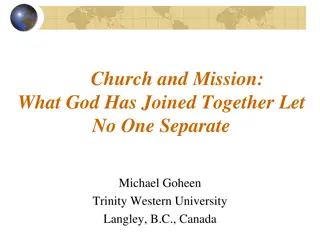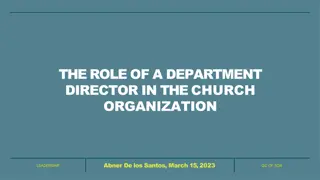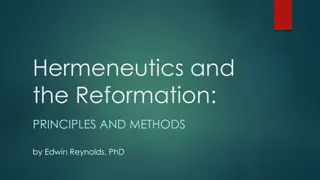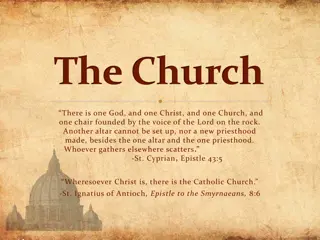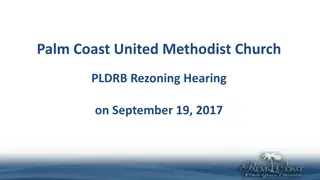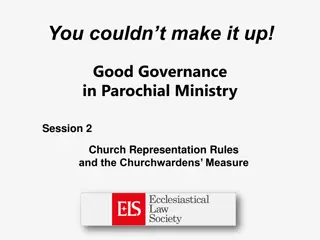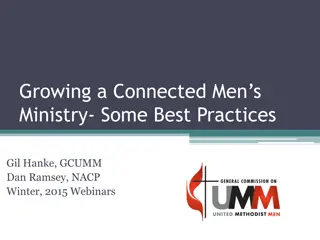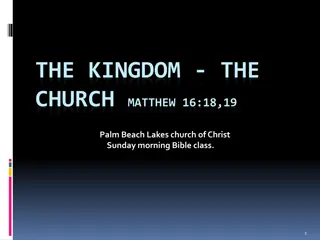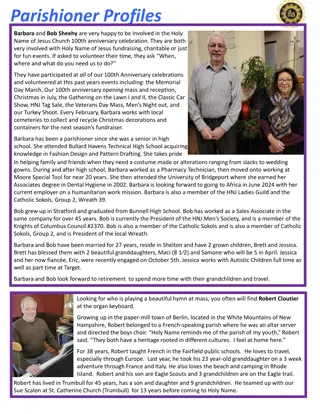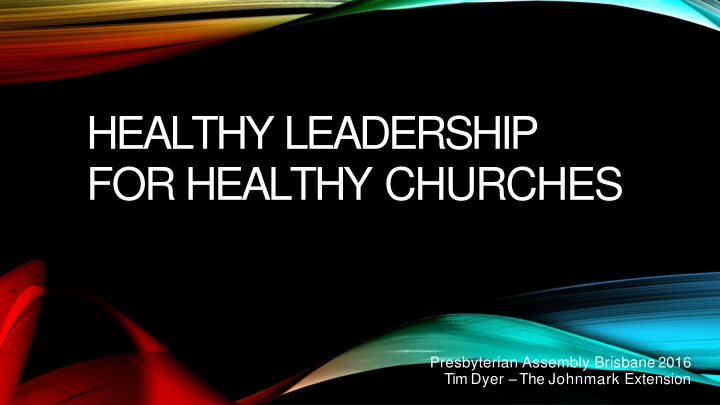
Healthy Leadership Strategies for Vibrant Churches in Today's Context
Explore the essential shifts needed for churches to thrive in the evolving cultural landscape, focusing on vision, mission, community, discipleship, and equipping believers for service. Discover how leaders can foster healthy church growth and engagement effectively.
Download Presentation

Please find below an Image/Link to download the presentation.
The content on the website is provided AS IS for your information and personal use only. It may not be sold, licensed, or shared on other websites without obtaining consent from the author. If you encounter any issues during the download, it is possible that the publisher has removed the file from their server.
You are allowed to download the files provided on this website for personal or commercial use, subject to the condition that they are used lawfully. All files are the property of their respective owners.
The content on the website is provided AS IS for your information and personal use only. It may not be sold, licensed, or shared on other websites without obtaining consent from the author.
E N D
Presentation Transcript
HEALTHY LEADERSHIP FOR HEALTHY CHURCHES Presbyterian Assembly Brisbane2016 Tim Dyer The Johnmark Extension
INTRODUCTION The contextual shift taking place around us is significant and long term. Churches are in a different space in Western culture today than they have been for a very long time. Doing the same things we have always done better will not work better in this new context. We need different models of ministry and church health to engage our culture with the Gospel.
VISION NEEDS TO MOVE FROM HEAD TO HEART AND FROM LEADER TO PEOPLE Healthy churches are made up of many passionate people not justone! Two church based discernments Who is God calling us to reach with the Gospel? What kind of a church isGod asking us to become as His people in thislocality? Being able to answer this with clarity is one of the key responsibilities of church governance
MISSION IN EVERYDAY LIFE Mission will move beyond church programs and into everyday life and encounters Personal evangelism is back (but our starting point is very different). Sharing, apologetics, education. Everyone, everyday, everywhere! Gathering for Sunday worship is recharging the mobile , realigning values and learning to speak and share theGospel .
WHY PEOPLE WILL STILL COME TO CHURCH While good content will always be important, it will not be exclusive to church in the future Christians will want to be together with other likeminded, deeply committed people to pray with them, talk with them and worship with them (koinonia) Alongside of theological training, ministers will need to learn the skills of facilitating authentic relationships between people
GROWING MATURE DISCIPLES Healthy churches are taking discipleship and mentoring (coaching) seriously Discipleship Foundational practices of the Christian life Pastoral Mentoring Support through lifechallenges Accountability Intentional personal and spiritual growth
EQUIPPING OTHERS TOSERVE Ministry is the task of the whole body of Christ not just the clergy The task of clergy is to prepare, train, equip and to release others to serve Spiritual (grace) gifts in others need to be affirmed, developed and mobilised both in and beyond the church (1 Cor 12, Romans 12, Ephesians 4, IPeter4)
CREATIVE ENCOUNTERS WITH CONTEMPORARY CULTURE As leaders we need to know what the adults and young people in our churches are facing in their encounters with post-Christianculture Engaging pastoral listening Working with others on their spiritual sensitivity and their critical Biblical thinking (Especially informative young adult years) Teaching the Wordcreatively
DO GETONLINE Online presence will not substitute for on-site presence Use your website to connect with your local community, to engage with church members and also to connect to those who do not attend The vast majority of people who do not attend on Sunday morning are online during the week


